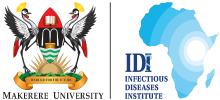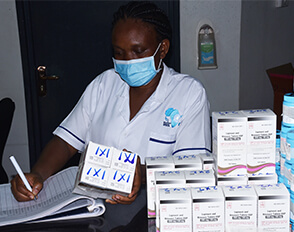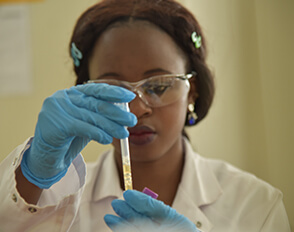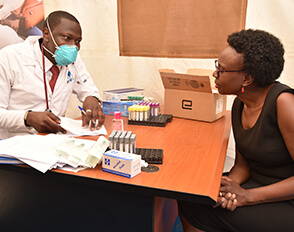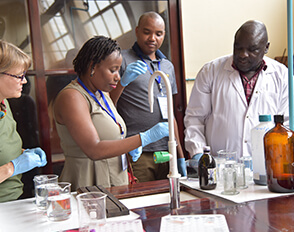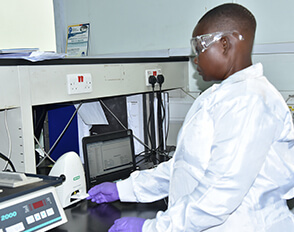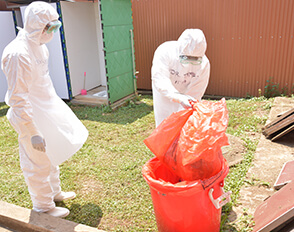
ANC/iCCM West Nile Project Empowers Health workers, VHTs, and Communities to Fight COVID-19
Because of the COVID-19 pandemic, ANC/iCCM service provision in Adjumani and Moyo districts was severely affected. The number of pregnant women attending their first ANC started fluctuating significantly. Similarly, fluctuations were noted in the trend of the number of sick children aged 2 months to 5 years seen/attended to by VHTs. The ANC/iCCM project was then designed to maintain or increase the appropriate and safe provision of iCCM and ANC services, with a primary focus on infection prevention and control during service delivery at health facilities and VHTs.
Our mission is to ensure that the trends in the uptake of iCCM and ANC services are maintained or even improved despite the COVID-19 surge. This mission is steadily on track. Notably, in Adjumani district, 873 pregnant women attended their first ANC in January 2021 compared to 1,261 in April 2021. In Moyo district, 288 pregnant women attended their first ANC in February 2021 compared to 365 in March 2021. Regarding iCCM, in Adjumani district, VHTs attended to 2,447 sick children aged 2months to 5 years in the quarter of July to September 2020 compared to 7,527 children in the quarter of January to March 2021.
What is the magic behind this steady progress?
Through our monthly supportive supervisions, more than 70 ANC service providers at Sixty-nine (69) health facilities have been mentored on and supported to adhere to Infection prevention and control guidelines and deliver health communication messages to ANC clients. All the 69 health facilities in Adjumani and Moyo districts, have been supported with IPC items including temperature monitoring machines (infra-red thermometers), Hand sanitizers, hard duty gloves, dust bins, and their liners, gumboots, and face masks among others. “Today, I am grateful to IDI. You have given us more courage to fight against COVID-19 by giving us sanitizer, aprons, and temperature guns. With this support, we are going to register more and more pregnant women in our antenatal clinic”, said, ANC service provider at Maryland HC III in Adjumani district after receiving IPC items from IDI/CDC ANC/iCCM project.
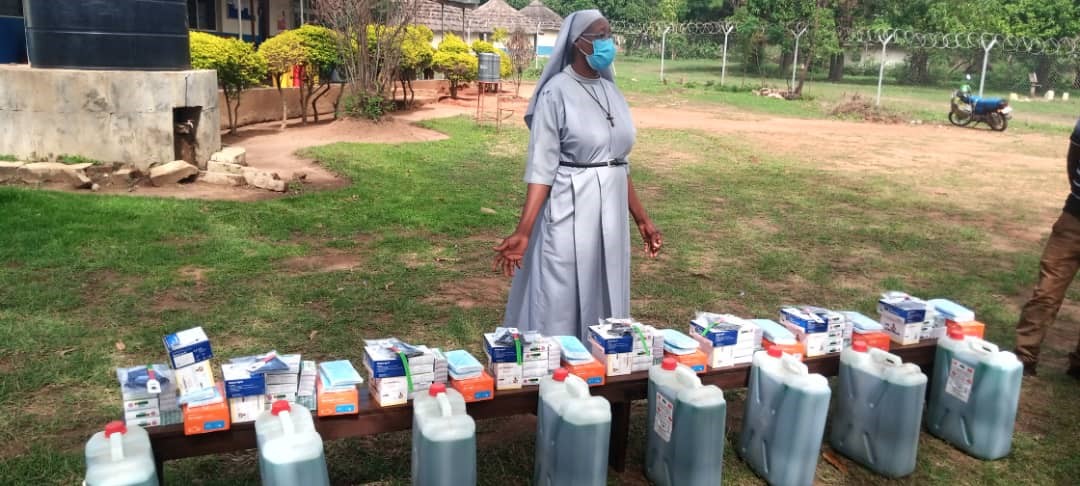
Health worker at Maryland HCIII in Adjumani district receiving assorted IPC items from IDI/CDC ANC/iCCM project.
Eight hundred (800) VHTs have been trained on infection prevention and control (IPC), integrated Community case management of fever, cough, and diarrhea (iCCM), and Social Behaviour change (SBC). “I have been fearing to attend to sick children since COVID-19 started, but today, IDI has addressed my fears through this training”, said, VHT attached to Ori HCII in Moyo district, after attending a VHT training on PIC and iCCM. At least 900 VHTs in Adjumani and Moyo districts have been provided with IPC materials including foot-operated handwashing facilities, face masks, gloves, sanitizers, liquid soap, and safety boxes among others. VHTs are now back to work, attending to children with fever, cough diarrhea, and any other iCCM activity well equipped to counteract the spread of COVID-19.
Risk communication and community engagement about infection prevention and control of COVID-19 is a core element of the ANC/iCCM project. Through community dialogue meetings, this second quarter alone, six hundred (600) community members including community gatekeepers have been reached with COVID-19 prevention information. During these dialogue meetings, community members, child caretakers, and pregnant women are being made aware of the available IPC measures at health facilities (ANC clinics) and VHTs.
“I had stopped taking my sick child to VHTs because of fear of corona. I have learnt today that, IDI has given VHTs things like soap, handwashing facility, gloves, and facemasks to protect us from COVID-19. I think, now I can change my mind”, Said, Child caretaker, during a community dialogue meeting at Pakele Town council. Another innovative aspect of our community dialogue meetings is building resilient and self-reliant communities given a disaster like COVID-19. Innovatively, we are leveraging our community dialogue meetings as one form of Disaster
Risk Reduction and Mitigation (DRRM) measure by building and increasing the capacity of individuals and communities in Adjumani and Moyo districts to resist the further spread of COVID-19.
“At first, I had no idea of how we could use our internal resources to stop further spread of COVID-19. We have been largely relying on government and NGOs. I am going to use my lesson learned from this dialogue to mobilize my people to fight COVID-19”, said, LC1 Chairperson of Mokolo-East village in Adropi sub-county, during a community dialogue meeting at Adropi Sub-County Headquarters on 26th May 2021.
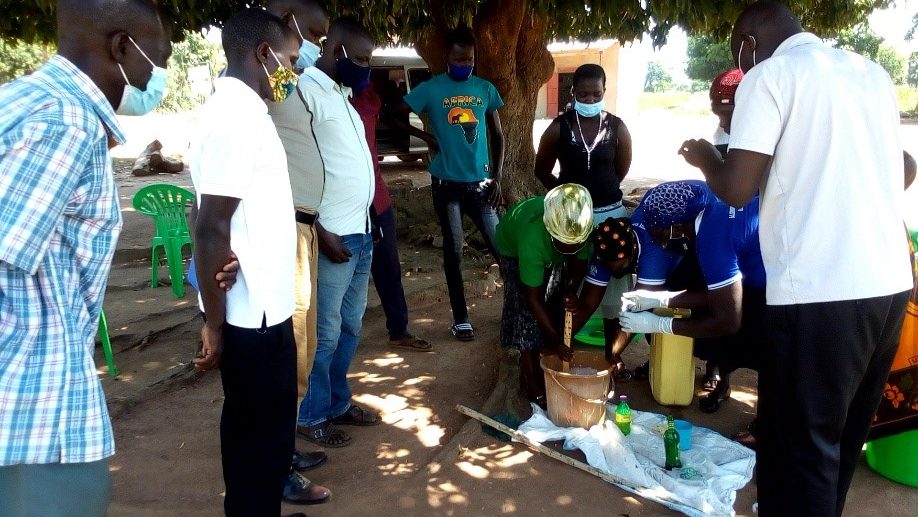
Community leaders of Mokolo-East Village in Adropi Sub-county Adjumani district being trained on how to manufacture liquid soap
This was one of the decisions community leaders took during a dialogue meeting at Adropi Sub-County Headquarters on 26th May 2021. Community leaders took this decision in order to address the challenge of insufficient and unaffordable disinfectants for handwashing during COVID-19.
The ANC/iCCM project is funded by The President’s Emergency Plan for AIDS Relief (PEPFAR) through the US Centers for Disease Prevention and Control.
